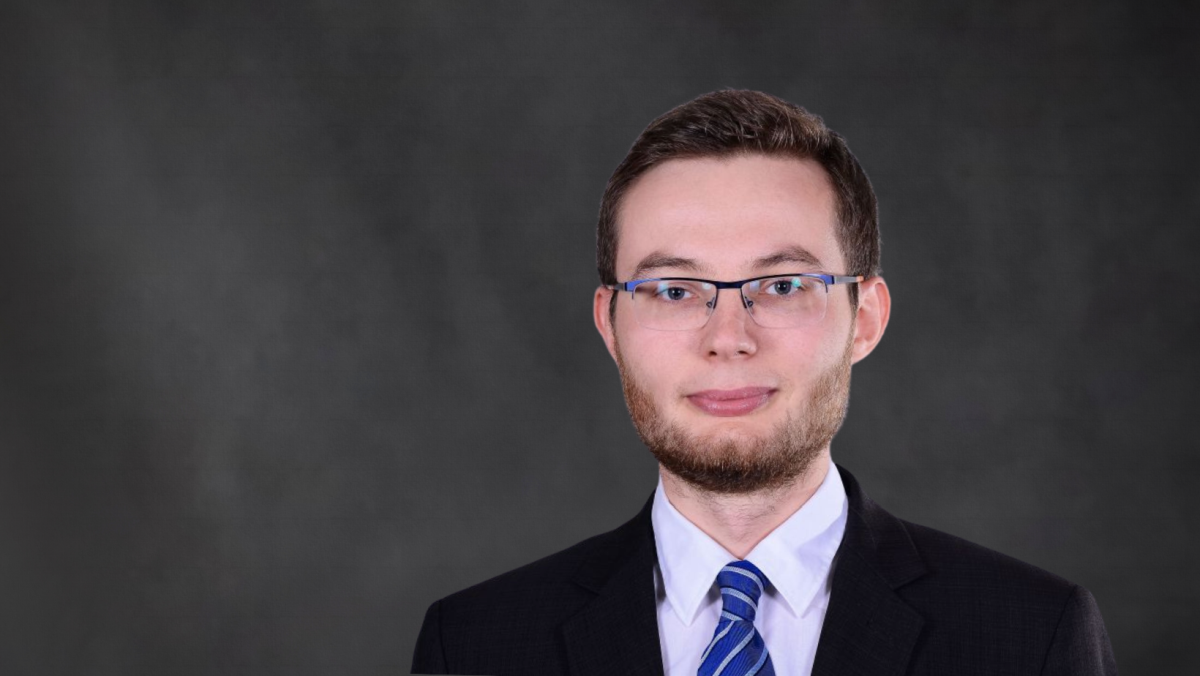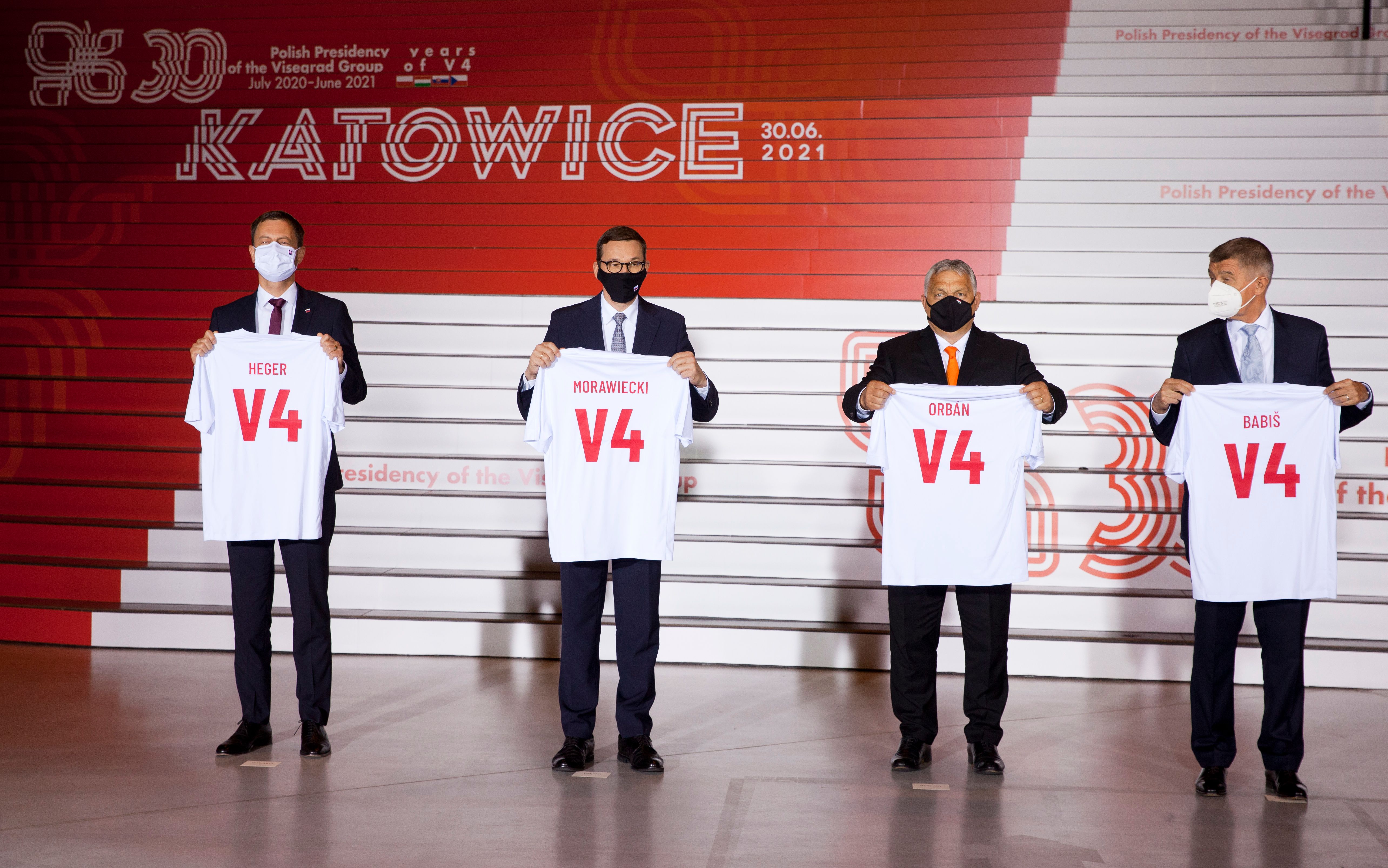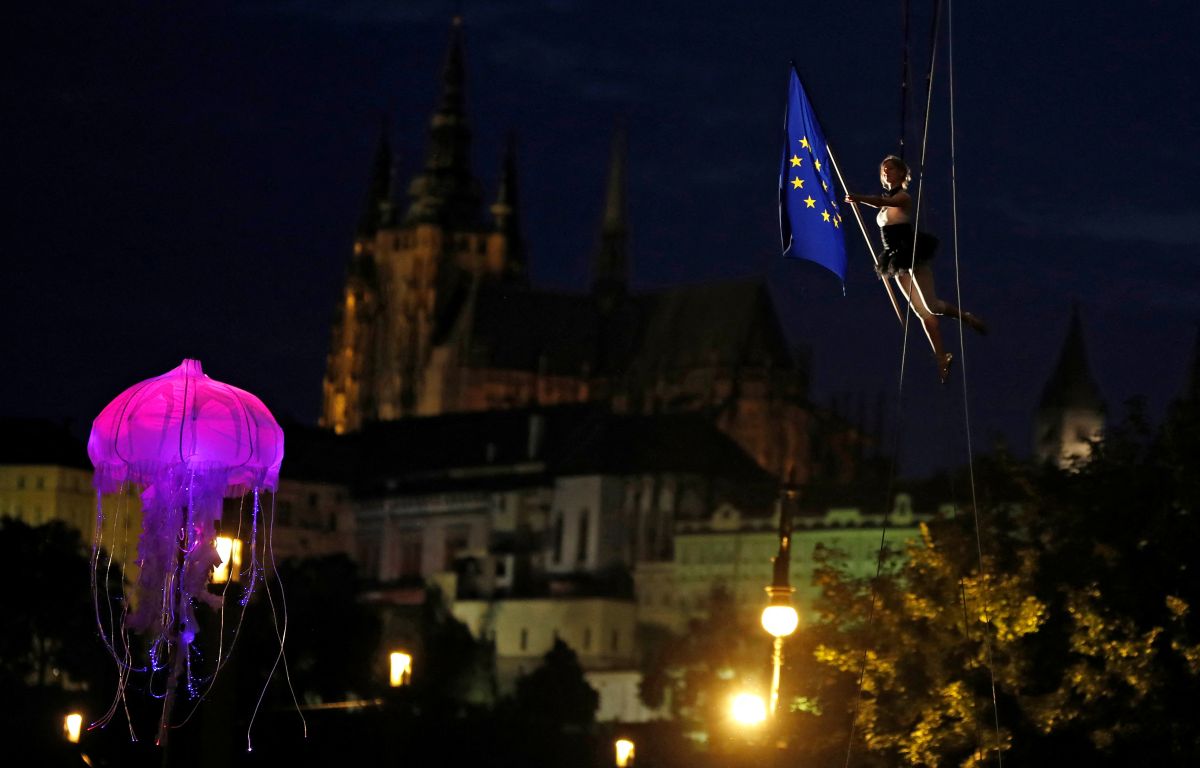Surviving by Minimalism: Slovakia's V4 Presidency
The Hungarian government’s reaction to Russia’s invasion of Ukraine has undermined the trust of Poland, Czechia, and Slovakia. This limits political cooperation within the Visegrad Group (V4) and has a negative impact on its activities, including in the field of defence. Therefore, Slovakia, which on 1 July took over the year-long presidency of the V4, plans to focus on non-controversial topics such as transport, culture, and tourism. At the same time, it wants to be more actively involved in other platforms of regional cooperation, mainly the Slavkov Triangle.
 Ivan Vdovin/ Interfoto/ FORUM
Ivan Vdovin/ Interfoto/ FORUM
The Slovak presidency has started with the V4 suffering its greatest crisis in years. Although the group’s prime ministers consulted seven times during the previous Hungarian presidency, there has not been a Visegrad meeting at this level since the beginning of the Russian invasion of Ukraine in February. The lone summit of prime ministers of the V4 and the UK, held in London on 8 March, was planned before the Russian invasion.
Difficulties in the Functioning of the Group
The cause of the partial paralysis of the V4 is the differences in approach to Russia’s aggression towards Ukraine. While Czechia, Poland, and Slovakia are among the countries helping Ukraine the most by providing it with, among other things, heavy weapons, Hungary even excludes the transit of weapons through its territory. This has caused Hungary’s Visegrad partners to negatively perceive its position on the Russian invasion, which translates into a lack of a common Visegrad voice and action on this matter.
The rift in the V4 surrounding the war extends also to sanctions policy at the EU forum. The Polish government criticised the slowdown of the sixth package of sanctions, which was eventually adopted in June, and the transition periods for abandoning oil from Russia negotiated by the other V4 members. In turn, the V4 do not agree on the introduction of an EU ban on issuing tourist visas to Russian citizens.
Bilateral friction also has a negative impact on the functioning of the V4. Although the Polish-Czech dispute over the exploitation of the lignite mine in Turów has been resolved, tension in Hungarian-Slovak relations continues. They include discrepancies in the assessment of the financial support provided to the Hungarian minority in Slovakia by Hungary, including the method for subsidising schooling for youth. The Slovak authorities have also accused their Hungarian partners of abusing the V4 brand in the dispute over the rule of law. The government of Eduard Heger is against the instrumentalisation of the group in any anti-EU policy, the consequence of which is the minimisation of cooperation on the judiciary during the current presidency. In turn, Prime Minister Viktor Orbán, during a traditional lecture at a summer school in July for the Hungarian minority in Băile Tușnad, Romania, criticised the governments of Czechia and Slovakia as “wanting to score points in Brussels”.
New and Old Priorities
In the face of the crisis in the functioning of the group, Slovakia proclaims the need to “return the V4 to its roots”. In practice, this means focusing on general objectives of cooperation, summarised in the Kraków Declaration of February last year, as well as on four non-controversial areas—infrastructure connections (e.g., on measures to complete the European TEN-T transport corridors in the region), the economy, sustainable development (e.g., promoting the circular economy), and people-to-people contacts. As part of cultural cooperation, Slovakia intends to focus on the development of the regional audio-visual industry.
The Slovak presidency pointed out multiple negative consequences of the war in Ukraine for the V4 countries and regional cooperation. In this aspect, it highlights military security, as well as food security, tourism, and the effects of migration from Ukraine on healthcare. Non-priority defence cooperation has worsened. This was confirmed by the cancellation of the V4 summit of defence ministers in Budapest in March as a consequence of the negative assessment of Hungary’s stance. Nevertheless, the Slovak presidency planned several ministerial and military meetings, also in the V4+Ukraine format. It was also announced that the group would provide Ukraine assistance in de-mining activities “once the war has ended”. Slovakia also will contribute to EU security through the V4 EU Battlegroup in the first half of 2023.
Regional, EU, and Global Cooperation
Slovakia is becoming increasingly sceptical about the importance of the V4 in the EU and beyond. This is evidenced by both the statements of the authorities and their involvement in alternative formats, primarily in the Slavkov Triangle (S3), which from 1 July this year Slovakia is also chairing. It is using its leadership to implement, among others, Eastern policy, as confirmed by the visit of the foreign ministers of Austria, Czechia, and Slovakia to Kyiv and Donbas on 7-8 February this year. They offered support to Ukraine also during their meeting in Alpbach, Austria, on 24 August, six months after the Russian invasion. As leader of the S3, Slovakia announced the group would focus on health, transport, and energy issues, as well as the enlargement of the EU to the Western Balkans. These goals are in line with the assumptions of its simultaneous leadership of the V4. Its programme, unlike the previous Hungarian and Polish V4 presidencies, does not include cooperation in the Three Seas Initiative. This reflects Slovakia’s restrained stance towards this format. The main assumption of this initiative, though, is in line with the presidency’s programmatic postulate to complete infrastructural “North-South interconnections”.
At the EU level, the V4 presidency programme does not assume a common position in the discussion on the future of the EU. Although the Hungarian presidency did not either, it is a change from Slovakia’s more ambitious approach four years ago. However, its authorities point to the need to coordinate, for example, the group’s activities on the EU budget and environmental and climate issues. These include the negotiations on the revision of the Sustainable Use of Pesticides Directive, Carbon Border Adjustment Mechanism (CBAM) Proposal, the revision of the Energy Taxation Directive, and the promotion of the new EU Forest Strategy for 2030. In addition, the Heger government announced that it will coordinate its presidencies in the V4 and S3 with the current Czech presidency of the EU Council. By cooperating with it, as well as with the Swedish one that will follow the Czech one, the Slovak government wants to continue work on the reform of the Schengen area.
Slovakia, like Hungary, eagerly uses the V4+ format to tighten cooperation with non-European partners. Although, as stated by Minister of Foreign Affairs Ivan Korčok, the Slovak presidency, unlike the Hungarian presidency, wants to “lull” the group’s foreign policy activity, it plans to continue cooperation with various countries, primarily the innovation-driven economies of Israel, Japan, and South Korea, whose involvement in Central Europe is increasingly related to green technologies and electromobility. Despite the lack of a unified approach by the V4 to China, the presidency’s plans include a meeting of representatives of foreign ministries in this format. However, it will be controversial due to the tensions in the Taiwan Strait, so whether it will take place is questionable.
Conclusions and Perspectives
The low frequency of events in the first weeks of the Slovak presidency of the V4 and their relatively low level signal a crisis in the group since the Russian invasion of Ukraine. The unprecedentedly short programme of the presidency shows the minimalist approach of Slovakia to managing the format. At the same time, it still highly appreciates Visegrad cooperation and aims to develop it in non-controversial areas, maintain communication on contentious topics, and curb attempts to ideologize the format. The Slovak authorities want to distance themselves from Hungary’s foreign policy by limiting cooperation in that area and focusing instead on transport, tourism, culture and other non-controversial areas. Heger’s government will try to compensate for the lowered dynamics of Visegrad cooperation with involvement in other regional formats, primarily the S3, which it will use to articulate support for Ukraine and other positions.
Slovakia will strive to maintain the coordinating function of the V4 around EU policies. The current presidency of the EU Council by Czechia, which will take over the V4 presidency after Slovakia, is favourable in this context. Although as a result of the crisis in the V4, Czechia does not show any ambition to influence the Union, there is unity on elements of EU enlargement policy, migration, cohesion, and scepticism towards ending the requirement for unanimity in the EU Council.
For Poland, primarily due to Hungary’s attitude, it will be problematic to use the potential of the Visegrad Group to support Ukraine and to further tighten EU policy towards Russia. On the other hand, the promotion of the expansion of gas interconnectors announced by the Slovakian leadership, given that Poland has an LNG terminal, is beneficial. This is confirmed by the launch on 26 August of the Strachocina gas connections between Poland and Slovakia.





